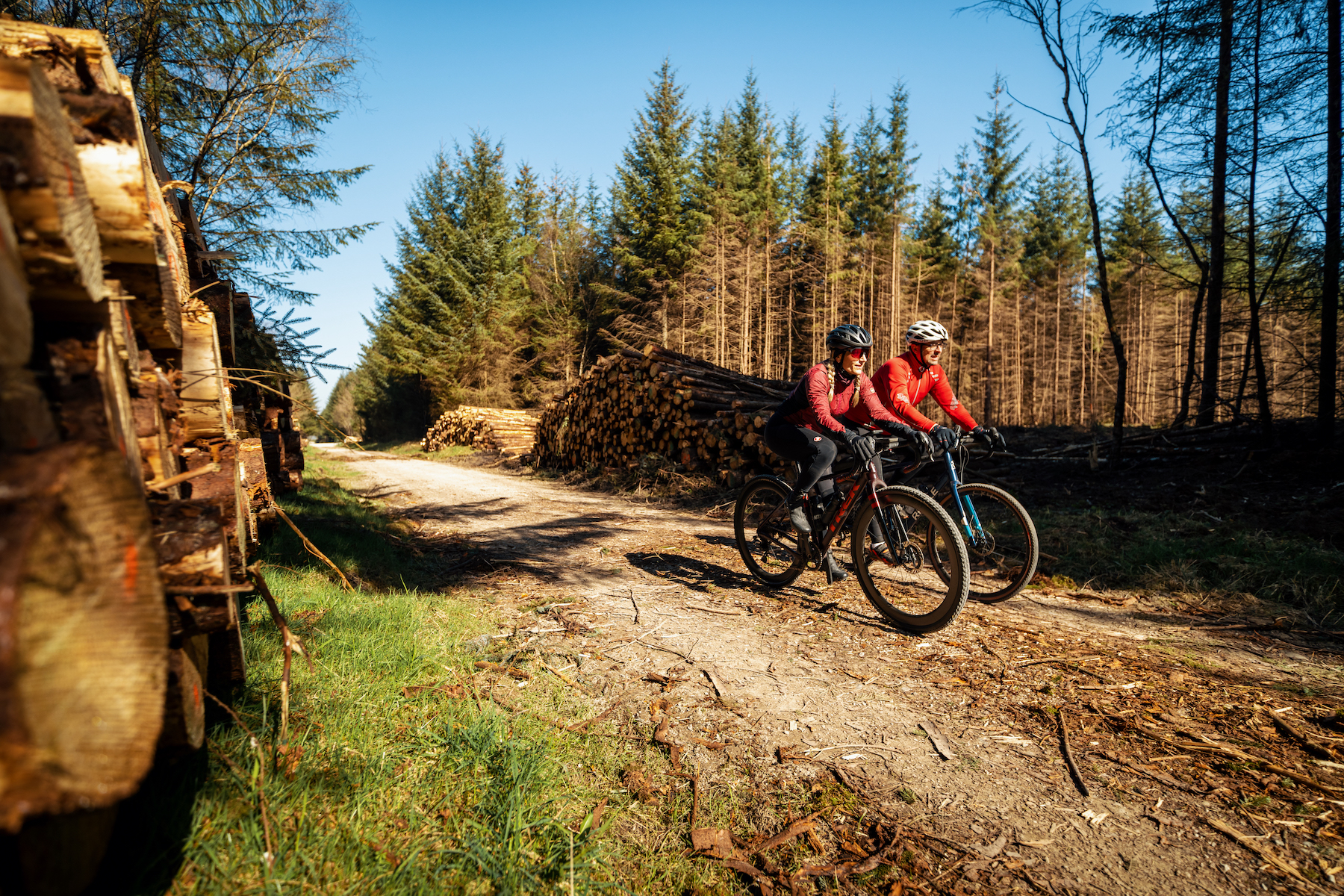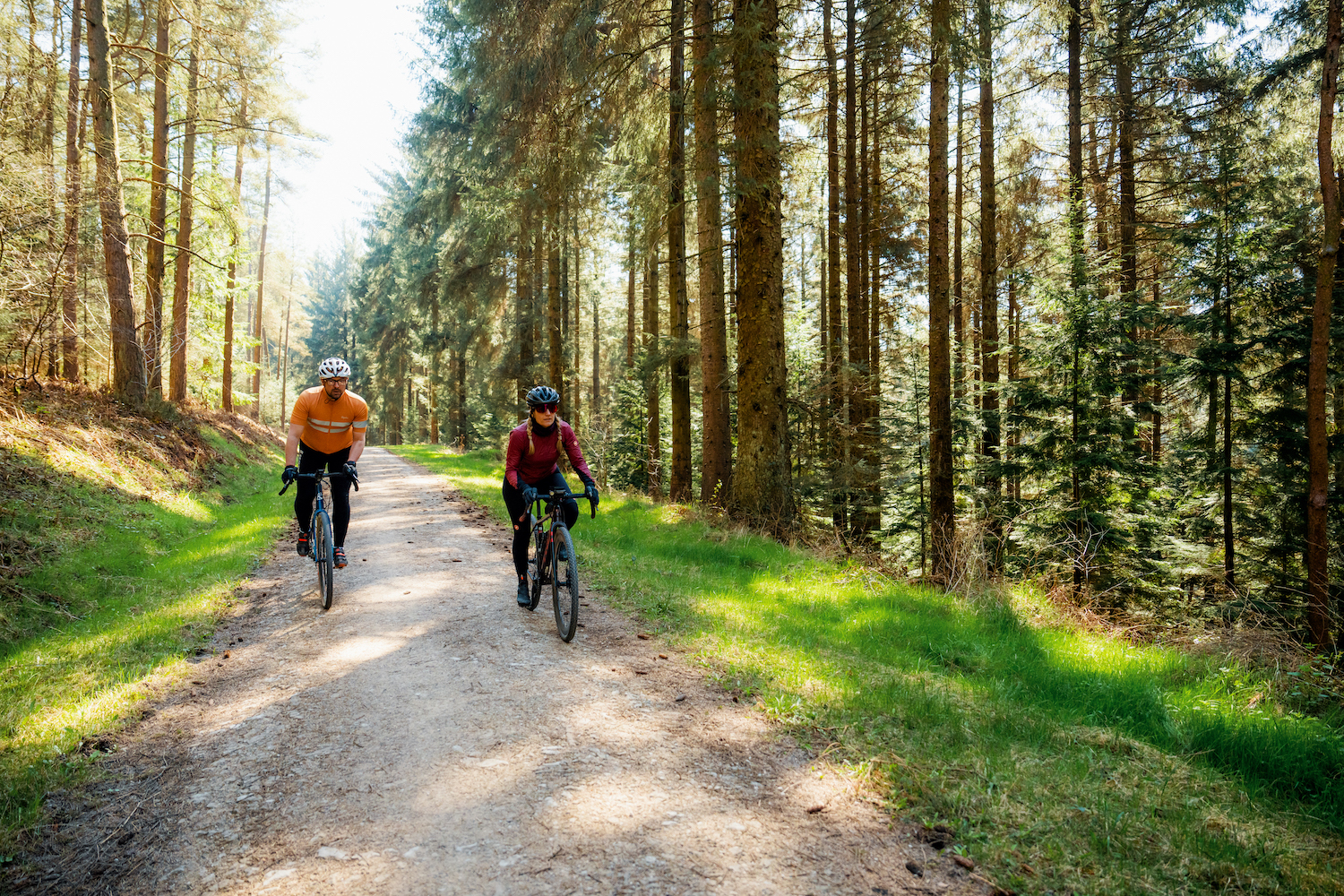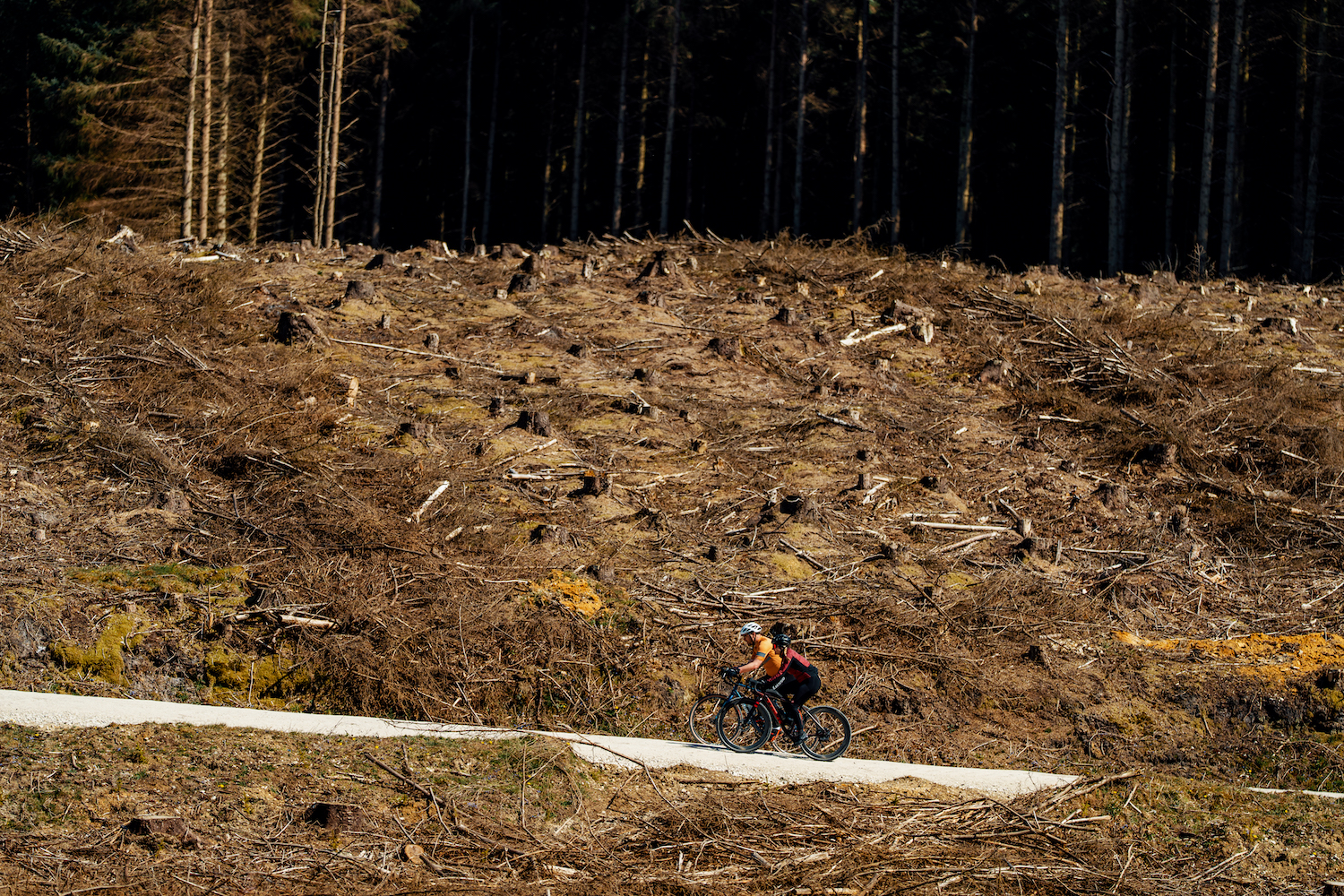
This year's British Gravel Championship is some way off, but we have a cast-iron prediction: whoever wins a tricolour jersey on September 14 will have well and truly earned it.
Having journeyed up to Dalby Forest in North Yorkshire last week to meet organiser Red On Sports and experience the course for myself, I can confirm that riders will mostly be either climbing or descending, with some heart-in-mouth technical moments and impressive views thrown in for good measure.
Elite men and women, juniors and masters will all ride the same 120km race, comprising four laps of a 30km course with relentless ups and downs, teeing contenders up for a two-mile flat and non-technical finish.
The 14.5km time trial course features completely different tracks to that of the massed start events, and is broadly flat. However, this couldn't be further from the stereotypical straight out and back TT course – it's technical nearly all the way through, and builds to a searing crescendo in the form of a steep, mile-long road climb to the finish.

Imagine one of southern England's famous hillside chalk horses, reimagined as a llama by a slightly drunk impressionist – you have imagined the 30km lap of the British Gravel Championships massed start race.
Each 'leg' (there are four) represents a descent and then the haul back up to the plateau, all on double track and mostly through lush pines.
Given I've lost my climbing ability down the back of the sofa along with a zillion crisp packets, Red On's Debbie Rycraft, a former top level rider, displayed impressive patience as she guided me round the course, never once giving in and saying "Sod this, I'll see you at the top."
The descents were fast and exhilarating, often steepening up towards the bottom on the approach to an about-turn into a climb. I touched 31mph (50kph) on one of these – I can only imagine the speed the pros will reach.
After completing the ascents – the last of which opens out into an impressive pine-flanked valley – the final two miles (3km) is flat and untechnical, save for a moderate wiggle through some singletrack on the final approach, and should allow the elites to sort themselves out for a final sprint.
For me, after 30km and 600m of climbing, even the final drag across the gravelly expanse that will act as the finishing straight in September was challenge enough. Do it another three times? I'll leave that to the racers.
Suffice to say, it's a course worthy of champions and, if only they could stop and admire the view, a beautiful one too.
This is the third location in as many years for the championships, which is run by event organiser Red On Sports independently of British Cycling but yields the famous red, white and blue winners' jerseys all the same.
Last year saw a late move away from the Kings Forest in Suffolk, where it had lived for three years, after an increase in forestry fees made it untenable. It was held instead up in Galloway, in the same area as the Gralloch UCI World Series event, with Red On all the while scouting around for somewhere slightly more permanent.
In North Yorkshire's Dalby Forest that venue might just have been found, reckons Red On's Max Wussler.
"I'm confident it'll be a much loved venue, which then means it can absolutely be one for future," he tells Cycling Weekly. "I wouldn't rule out that maybe routes are changed, but we've got the opportunity in this forest to do a lot more, and that excites me.
"It's not your typical forest here with sort of just one type of look and feel to it," he adds. "It has all sorts of different types of gravel, from super hard compact to slightly looser stuff, to riding on pine needles this last bit up here."
It would be a versatile rider, Wussler predicts, that will ultimately prevail in the championship.
He says: "Obviously the riders will be the ones to issue their verdicts after the race, but we're confident we've designed two really special routes for them."

The plan had always been to move on from Kings Forest's cosy environs at some point, says Wussler, in order to find a more challenging course with bigger scenery – something easier said than done, he says, within Britain's crowded borders and, in England, complex land ownership issues to navigate.
"Venue search is always quite a challenge in the UK, and obviously there's differences between the different countries – England and Scotland, particularly in terms of land access, land ownership, land management," Wussler explains.
"Scotland proved a lot easier to find venues in – you're not having to deal with too many of the land ownership issues. England's more difficult – there's different types of sites, MoD sites, Forestry England sites… We looked at quite a few of the different Forestry England sites," he says.
Because of the fees charged, any Forestry England site also needed to offer an event field and plenty of variety and an extensive trail network, as well as climbing options – "the full package", says Wussler.
"When you apply all those filters, you are left with very few," Wussler says. "Having said that, once you fulfil those criteria, you are fortunately left with a really stunning option here at Dalby Forest."
As the organiser of the Gralloch, a UCI Gravel World Series event held each May, Wussler has no beef with working cycling's major overseers. However, within the UK, gravel riding and racing is one of the few mainstream bike riding disciplines that British Cycling (which oversees road racing, track, cyclo-cross and mountain biking) has so far not sought to lead the way on.
Much has been made of the 'spirit of gravel' – a carefree and slightly maverick approach that feels far less tied up in red tape than some other disciplines. Does Wussler fear that that could be lost if BC steps in?
No, is the short answer.
"We don't own gravel," he says. "British Cycling, if they were to get involved, don't own gravel. It's a very community-driven part of cycling. And so what I think we've done over the years is really focused on just delivering what the gravel community wants to see as their National Championships.
"Certainly we are really open to engaging with British Cycling to help them understand gravel and be involved in gravel and contribute to gravel for the better. But the ball is in British Cycling's court to show that they're open for something like that. Because they've got to make sure they're offering added value to gravel if they want to get involved. Without that, what's the point?"
As to exactly who those versatile riders vying for the elite champions' jerseys in September, Wussler is not able to say for definite at this point, but he is confident that the strong fields of previous years – Connor Swift (Ineos Grenadiers) is defending men's champ, leading in cousin and team-mate Ben Swift last year, while Alison Jackson (EF-Oatly) was first in the women's race with the champion's medal going to second-placed Annabel Fisher (Classified Ridley) as first British finisher.
"I think more and more of the elite riders are recognising it's a fantastic addition to their season," Wussler says. "You know, typically the [Gravel] National Championships fall at a decent point towards the end of the road season – shortly after the men's Tour of Britain. So, you know, we'd expect, hopefully, another stacked field."
The British Gravel Championships 2025 are held over Fri-Sun September 12-14 at Dalby Forest, North Yorkshire.







